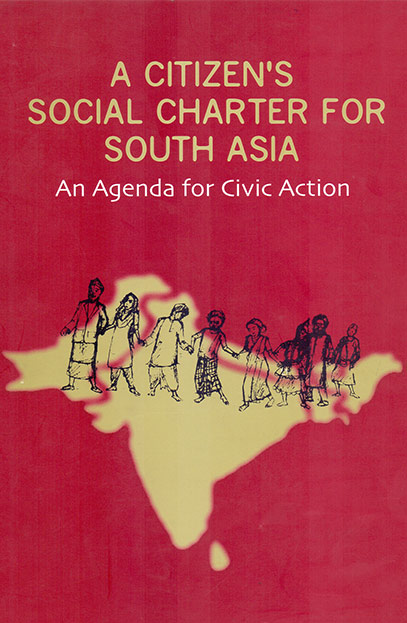
- Shop
- A Citizen’s Social Charter for South Asia: An Agenda for Civic Action
A Citizen’s Social Charter for South Asia: An Agenda for Civic Action
https://uplbooks.com/shop/9789840517435-a-citizens-social-charter-for-south-asia-an-agenda-for-civic-action-11867 https://uplbooks.com/web/image/product.template/11867/image_1920?unique=b656810
| Language: English |
Tags :
Book Info
The South Asia Centre for Policy Studies (SACEPS) has commissioned a Task Force drawn from across South Asia to prepare a Citizen's Social Charter for South Asia (CSCSA). This charter, which was prepared over a period of six years, involved citizen groups from across Bangladesh, India, Maldives, Nepal, Pakistan and Sri Lanka. This is the first volume published on the CSCSA. The present volume is divided into two parts. Part I presents the CSCSA and the National Citizen's Social Charters prepared by citizen groups in each of the above six countries. The charter documents in this volume spell out a charter of obligations for each South Asian state to address such vital social issues as the eradication of poverty, the empowerment of women, the protection of children and the elderly, environmental degradation and the development and utilisation of human resources. The various charters spell out specific plans of action, policies and programmes and the allocation of resources needed by the states to meet their obligations under the charters. Part II of the volume reviews the preparatory process involved in drafting the charters. It contains the reports of the three meetings of the Citizen's Task Force set up to prepare the CSCSA convened by SACEPS in 2002, 2003 and 2004 in Dhaka and Colombo. The reports of these meetings have spelt out the rich discussions involved in designing the CSCSA and the initiatives needed to operationalise the Citizen's Charter. The report of the final meeting of the Task Force in Dhaka in February 2004 has pointed to the need for carrying forward the work of the national citizen's groups by building up a broad constituency of citizen's groups in each country of South Asia. The CSCSA as well as the national charters published in this volume should serve as instruments for social mobilisation by citizen's groups across South Asia who remain committed to the concerns of the deprived and the excluded. The volume should provide policymakers, citizens, scholars, students as well as the development community with a better understanding of the actions needed to correct the injustices which permeate South Asian society.

Rehman Sobhan
Rehman Sobhan, a recipient of Shadhinata Puraskar, Bangladesh’s highest civilian award, is founder and chairman, Centre for Policy Dialogue (CPD). He served as a member of the first caretaker government in Bangladesh in 1991 and a member, Bangladesh Planning Commission 1972–75. He was a Professor, Economics Department, Dhaka University, and Director General, BIDS, Bangladesh. He was actively associated with the Bengali nationalist movement during the 1960s and the Bangladesh liberation struggle in 1971. His publications include Challenging the Injustice of Poverty: Agendas for Inclusive Development in South Asia (2010), Untranquil Recollections: The Years of Fulfilment (2015) and Untranquil Recollections: Nation Building in Post-Liberation Bangladesh (2021).


